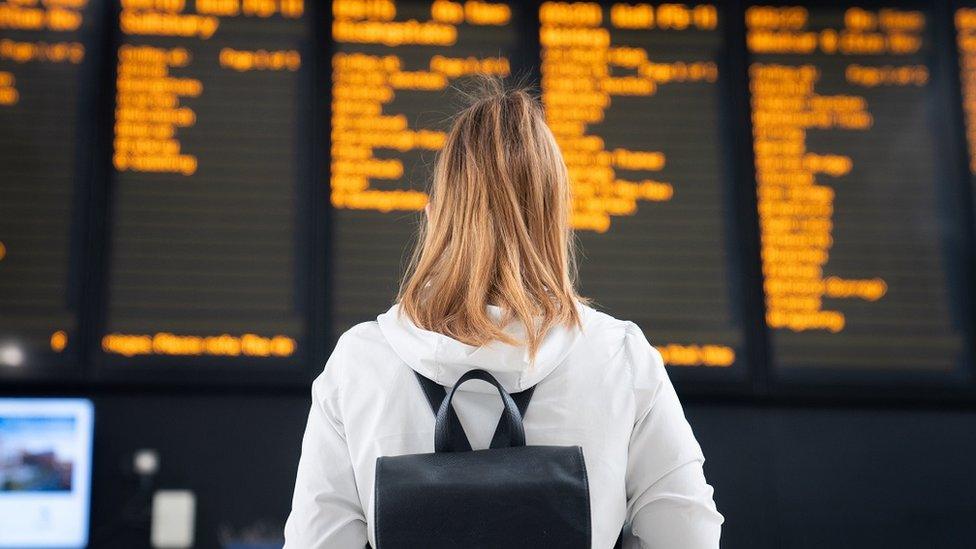Train drivers vote to continue strike action
- Published

Train drivers have voted to continue taking strike action for the next six months as part of a long-running dispute over pay.
The vote comes as train drivers begin nine days of industrial action between 1 and 9 December.
Strikes will affect train companies on a rolling basis, and the Aslef union has also imposed an overtime ban.
Mick Whelan, Aslef's general secretary, said the union was "in this for the long haul".
"Our members - who have not had a pay rise for nearly five years now - are determined that the train companies - and the Tory government that stands behind them - do the right thing," he added.
While the cost of living has soared, drivers' pay has not increased since 2019, so it is "unrealistic - and unfair - to expect our members to work just as hard for what, in real terms, is considerably less", Mr Whelan said.
The median salary for train drivers was £59,189 in 2021.
Unions in disputes need to reballot members every six months to see if they want to continue with industrial action.
Aslef reballoted its members at 12 train operators in England, and each saw large votes in favour of continued strike action.
The results come as Aslef members began an overtime ban, which lasts from Friday until Saturday 9 December.
Train drivers are also staging a "rolling programme" of one-day walkouts between Saturday 2 December and Friday 8 December, with different train companies affected on each day.
Many of the affected operators are expected to run no services at all on strike days, and travelling on the day before or after strike days might also be hit.
Some train companies, such as Govia Thameslink, will have reduced services for the whole period.
On Thursday, rail workers in the RMT union voted to accept a pay deal, ending their involvement in the long-running series of strikes.
Rail Minister Huw Merriman said: "Aslef is now not just the only rail union still striking, but the only union not to even put an offer to its members.
"They are instead choosing to cause more misery for passengers and the hospitality sector this festive period."
Mr Merriman said the current offer would bring the average train driver's salary up to £65,000 for a 35-hour, four-day week.

Will you be affected by the next rail strikes? Please share your experiences by emailing haveyoursay@bbc.co.uk, external.
Please include a contact number if you are willing to speak to a BBC journalist. You can also get in touch in the following ways:
WhatsApp: +44 7756 165803
Tweet: @BBC_HaveYourSay, external
Please read our terms & conditions and privacy policy
If you are reading this page and can't see the form you will need to visit the mobile version of the BBC website to submit your question or comment or you can email us at HaveYourSay@bbc.co.uk, external. Please include your name, age and location with any submission.
Related topics
- Published9 May 2024
